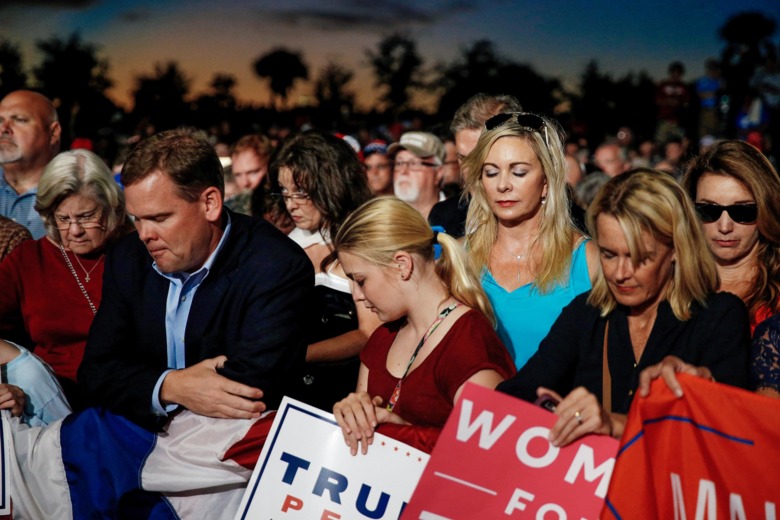Today the SCOTUS issued a decision that will allow public school coaches and teachers to bully and intimidate students into participating in prayers against their will. This is what passes for “freedom of religion” in the imperium per iudices of the United States.
I wrote about Kennedy v. Bremerton School District in April, when the Court heard the case. See SCOTUS, Culture Warriors, and School Prayer for background.
The majority opinion was written by Justice Gorsuch, and Ian Millhiser writes at Vox that Gorsuch misrepresented the facts of the case. (This is the pattern with this Court; if the facts don’t support how you want to rule, then change the facts.)
Moreover, because Gorsuch’s opinion relies so heavily on false facts, the Court does not actually decide what the Constitution has to say about a coach who ostentatiously prays in the presence of students and the public. Instead, it decides a fabricated case about a coach who merely engaged in “private” and “quiet” prayer. …
… In the real case that was actually before the Supreme Court, Coach Kennedy incorporated “motivational” prayers into his coaching. Eventually, these prayers matured into public, after-game sessions, where both Kennedy’s players and players on the other team would kneel around Kennedy as he held up helmets from both teams and led students in prayer.
After games, Kennedy would also walk out to the 50-yard line, where he would kneel and pray in front of students and spectators. Initially, he did so alone, but after a few games students started to join him — eventually, a majority of his players did so. One parent complained to the school district that his son “felt compelled to participate,” despite being an atheist, because the student feared “he wouldn’t get to play as much if he didn’t participate.”
See A coach coerced students to pray, and the Supreme Court just said it was OK by Paul Peterson, father of four former Bremerton High School students.
It’s not the job of coaches or teachers to lead schoolchildren in prayer or coerce them, whether explicitly or implicitly, to join in religious activities. Students and their families, not public school employees, get to decide their religious practices and beliefs. Religious indoctrination is not the instruction that I or the parents I know want the public school involved in.
Well, yes. The issue was never that the coach was seen saying prayers on the 50 yard line; it was that team members were coerced into joining the prayers. And some of the players felt uncomfortable with this, because the prayers didn’t reflect their religious views.
“There is no indication in the record,” Gorsuch wrote, “that anyone expressed any coercion concerns to the District about the quiet, postgame prayers that Mr. Kennedy asked to continue and that led to his suspension.” Perhaps the Justice overlooked the amicus brief joined by parents like Paul Peterson, who felt that Kennedy’s prayers were coercive and out of bounds. Mark Joseph Stern reported,
The plaintiff’s lawyers insist that he was fired from his job as a football coach for engaging in “quiet, private prayer” at the 50-yard line after games. The extensive record developed in the district court tells a different story. It demonstrates that Kennedy formed prayer circles with team members after each game, leading the students in audible Christian prayer while in the midst of his formal duties. When the school district asked him to pray privately instead, he claimed he had been persecuted for his religious exercise.
Kennedy hired far-right lawyers who threatened legal action against the school district, transforming the postgame ritual into a media spectacle. Eventually, students began racing onto the field to join the prayer circle, creating a 500-person stampede that injured multiple people. Put simply, there was nothing “quiet” or “private” about Kennedy’s proselytization. (Also, he wasn’t fired; he was placed on paid leave.)
Not every member of the football team shared their coach’s Christian faith. But virtually all of them felt compelled to participate. Team members later explained that praying with Kennedy was “expected.” The coach even encouraged his own players to recruit their opponents and their coaches into the prayer circle. Some students joined in only because they feared they “wouldn’t get to play as much” if they declined, or because “they did not wish to separate themselves from the team.”
One member of the football team during Kennedy’s tenure, who came forward under a pseudonym for fear of retaliation, attested that he refused to bow his head because Kennedy’s prayers did not align with his own beliefs. He was then “persecuted” for failing to conform, treated poorly by the coaches and permitted to play only because of his talent on the field. The experience still haunts him, as well as others who felt queasy about the indoctrination they faced at school. These players, the student said, “would rather forget about that time of their life.”
Kennedy hired far-right lawyers who threatened legal action against the school district, transforming the postgame ritual into a media spectacle. Eventually, students began racing onto the field to join the prayer circle, creating a 500-person stampede that injured multiple people. Put simply, there was nothing “quiet” or “private” about Kennedy’s proselytization. (Also, he wasn’t fired; he was placed on paid leave.)
Not every member of the football team shared their coach’s Christian faith. But virtually all of them felt compelled to participate. Team members later explained that praying with Kennedy was “expected.” The coach even encouraged his own players to recruit their opponents and their coaches into the prayer circle. Some students joined in only because they feared they “wouldn’t get to play as much” if they declined, or because “they did not wish to separate themselves from the team.”
Christian nationalism, here we come.




